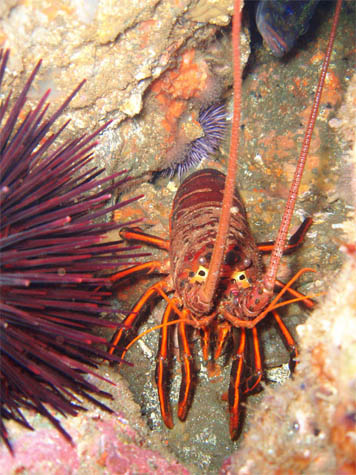Bren School Scientists, Fisherman Examine Marine Reserves
Group Claims Success in Reviving Spiny Lobster Populations

In conjunction with Southern California’s growing trend of marine sustainability and the reformation of fishery management, local trap fishermen and scientists from UCSB’s Bren School of Environmental Science and Management created CALobster, a partnership focused on the effects of marine reserves in the Channel Islands area on the spiny lobster.
Aimed at developing ways to fiscally and effectively maintain working harbors as well as the spiny lobster population, the fishermen, scientists, managers, environmental groups, and general public of CALobster plan to assess a recent controversial management decision to initiate no-take fishing reserves at the Channel Islands. In addition, the collaboration is developing an education program to train graduate students in fishery management, ensuring a future for the harbors and fish alike.
After two years of monitoring lobster populations in and out of the reserves, the group has found an increase in the California spiny lobster numbers. Such results indicate the effectiveness of marine reserves, and present a viable way to preserve the species as well as the fishing economy. However, CALobster plans to continue research, since the lack of previous data prevents researchers from properly determining population trends.
The group will hold a symposium, titled “The First Five Years of Monitoring the Channel Islands Marine Protected Area Network” this Friday morning to present its plans and findings. The presentation will be at the Embassy Suites Mandalay Beach Hotel and Resort in Oxnard, and will be free and open to the public.
The program agenda can be found here.



